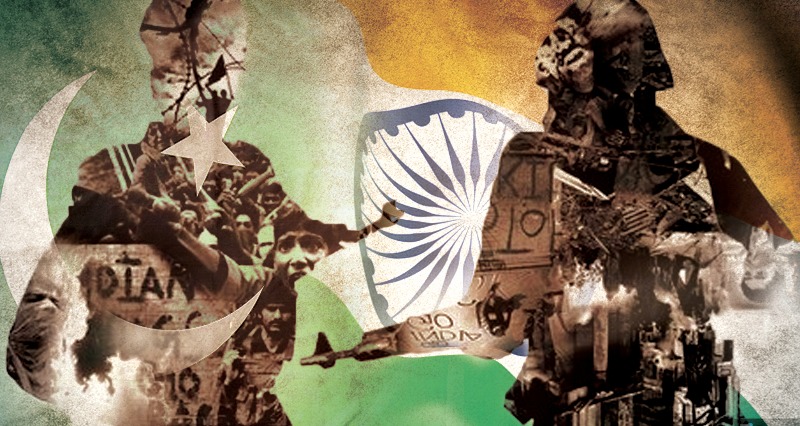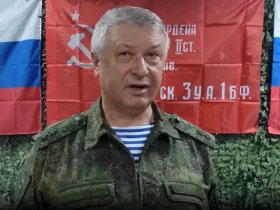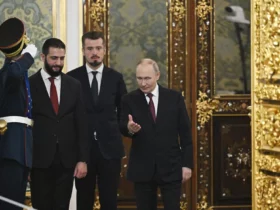Decades-long conflict between the two nuclear-armed powers in Kashmir has had a strong effect on all world powers, leaving allies and enemies intertwined, each player defending its position in the interest of maintaining or improving their position in the world. Given the current geopolitical deadlock, is there anyone with close enough relations to both sides to actually facilitate dialogue?
American foreign policy is particularly unnerving among the Indian and Pakistani political elite. Neither party in the Kashmir crisis trusts that the US’ efforts are legitimately aimed at stabilizing relations, due at least in part to Washington’s support for Indian anti-terrorism efforts. On the other hand, the “special relationship” of the American intelligence community with a number of terrorist organizations who essentially served as proxy armies in various hotspots around the World, in particular in Pakistan, is no longer a secret to anyone.
Recently, the official representatives of the Foreign Ministries of India and Pakistan met in the Indian part of the disputed state of Jammu and Kashmir.
The flare-up between India and Pakistan did not result in a large-scale catastrophe, as the conflicting parties were eventually able to reach an agreement and reduce tensions… but not before hostilities reached their highest point in the past decade.
Iranian silence
The first blood spilled in the long-term conflict this year took place on February 14th. A Pakistani separatist-militant group banned by the UN carried out a terrorist attack in the Indian part of Kashmir. The attackers detonated a car bomb which killed over 40 soldiers of the Indian Armed Forces. The terrorist group “Jaish-e Muhammad” (JeM) then claimed the responsibility for this attack. At around the same time, 27 members of the Islamic Revolutionary Guard Corps (IRGC) were killed in Iran, with Pakistani radicals from the ‘Jaish al-Adl’ claiming responsibility once again.
In the wake of the incident, Iranian top military commanders openly accused Pakistan of condoning terrorism.
Leader’s Military Aide: Pakistan, ISI should account for terrorist attack against IRGC#Iran #Pakistan #IRGC #JaishalAdl https://t.co/QVRXWCUUgJ
— Iran's Today (@Iran) February 17, 2019
IRGC Chief-Commander Major General Mohammad Ali Jafari and President Hassan Rouhani both suggested that Iran may launch operations inside Pakistani territory if Islamabad fails to identify and punish the Jaish al-Adl terrorists responsible.
“Our nation will undoubtedly take the revenge of the martyrs of the #Zahedan terrorist attack,” said Iranian President Hassan Rouhani addressing the people in #Hormozgan province. pic.twitter.com/XmaJG9gGX2
— Government of the Islamic Republic of Iran (@Iran_GOV) February 17, 2019
Iran’s Chief of Staff, Major General Mohammad Baqeri, warned that “fiery revenge” awaits Jaish ul-Adl and the other terrorist groups funded by regional Arab regimes such as Saudi Arabia and the United Arab Emirates (UAE).
“If a group is holed up in Pakistan using Saudi and Emirati money, carrying out such acts of terror by sending in some people, they should know that the flames of the Iranian nation’s revenge will burn them to ashes,” the general asserted.
However, Iran would not dare to actually claim revenge against Pakistan. The country is not in the best economic conditions given US sanctions and an expensive confrontation with Saudi Arabia, a country which incidentally makes huge investments in Pakistan. Iran will not act in spite of its economic interests. Therefore, Tehran swallowed its pride and had to be satisfied with the Pakistani army releasing four Iranian border guards taken hostage last October by terrorists working along the Iran-Pakistan border.
For this reason, Iran continues to stay quiet and remain neutral. Iran would not be foolish enough to act against its nuclear neighbor, and likewise has no major role to play in the negotiation process between India and Pakistan.
Chinese vetoes and Russian pragmatism
At the end of February, the situation between Pakistan and India was still heating up rapidly, including incidents that saw the downing of two Indian planes, and one Pakistani aircraft.
The United Nations Security Council (UNSC) did not approve a resolution by the United States, France and the UK to designate JeM leader Masood Azhar as a global terrorist, due to the fact that China, a permanent member of UNSC, vetoed the proposal. All other members of UNSC, including Russia, support India. This is not the first time that India sought to push such a measure at the international level… China’s veto made this the fourth unsuccessful attempt to designate the leader of the Pakistani militants as a global terrorist.
China considers Pakistan a strategic partner in promoting their “One Belt – One Road” economic policy, and see India as a strong economic rival. It makes sense for China to support its economic partner which is why Beijing ultimately said that the JeM leader fails to meet the criteria to be designated a terrorist.
It is noteworthy that Pakistan’s Foreign Minister, Shah Mahmoud Qureshi, admitted that Masood Azhar was on their territory. Pakistani troops don’t even hide their ties with him.
According to the UN, around 20 terrorist groups operate freely in Pakistan today, many of them under the control of the Inter-Services Intelligence of Pakistan. In a 2017 interview, the country’s former President Parviz Musharraf acknowledged that Pakistan makes use of terrorist groups, including JeM- a policy he disagrees with.
“This is a good move. I have always said that the JeM is a terrorist organization and that they only had carried out a suicide attack in an attempt to assassinate me”, he said.
In light of the difficult geopolitical balance, the Indo-Pakistan conflict is unlikely to be resolved in the near term. One way or another, the Pakistani army will continue supporting radical groups and using them for their own purposes… but is there any hope for a resolution?
Perhaps, given these difficult geopolitical conditions, it is not China, the United States or any neighboring countries that will end up playing a major role in resolving the Kashmir conflict, but Russia. Russia knows Islamabad’s so-called “strategic depth” strategy very well, as it dates back to the Soviet-Afghan war. At that time, Pakistan was the main player actively supporting the mujahideen, which later became the Taliban.
Today, not only all of Southeast Asia but also the entirety of Central Asia and the Middle East risk being dramatically shaken up as a result of the conflict between India and Pakistan, countries with nuclear weapons and efficient armed forces. Today, neither India nor Pakistan trusts neither the US’ nor the EU’s ostensible diplomatic efforts, and China is also taking a one-sided position in support of Islamabad. Given these factors, the most appropriate mediator and peacemaker might actually be Russia, which has allied relations with both India and Pakistan. Moreover, both countries are permanent members of the Shanghai Cooperation Organization (SCO), where Moscow plays a leading role. Having played a positive role in working to resolve the situation in Syria, Russia may be poised to use its diplomatic experience to facilitate negotiations between the long time rival nations.

















Leave a Reply